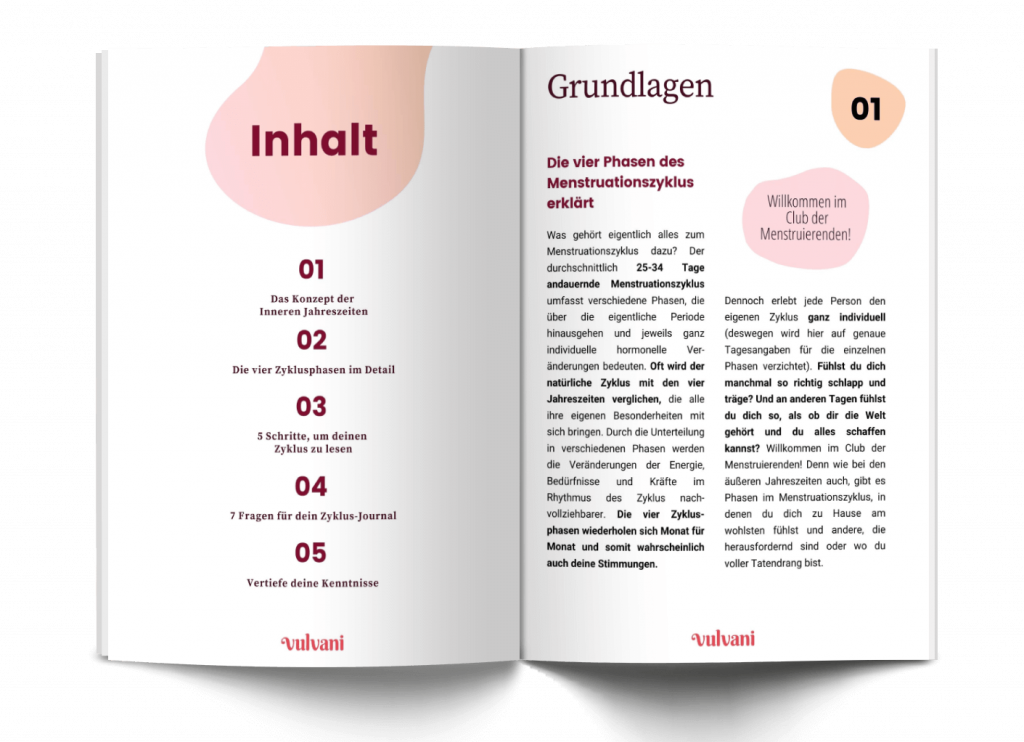
Discovering your menstruation as a spiritual practice
Yasmine understands her menstruation as a spiritual practice and shares in this interview how she is connecting more with her own body through cycle awareness.
In late 2019, the company Yoshimoto Kogyo released the comedy film Little Miss Period, about a character who personifies periods. She is a ‘pink, heart-shaped being’ who bothers menstruating people month-by-month, ‘delivering awful gut punches but also offering a shoulder to cry on.’ Little Miss Period, or Seiri-chan, in Japanese, also extracts blood with a syringe, to show how having your period can feel.
‘If only men could get periods, even just once a year.’
The film is based on a manga by the cisgender male artist Ken Koyama. Said manga is described as very blunt, with Little Miss Period visiting menstruators to deliver her ‘menstrual punches’ as cramps. But she also supports them in day-to-day situations. And if a menstruating woman encounters a rude, unfeeling partner or boss, she punches them as well, to show how it feels. The film’s plot is largely similar. Aoko, the main character, works in a publishing company under a cisgender male boss who is dismissive towards her pain. She also has a widower boyfriend who is raising a young daughter by himself. She says at one point, ‘If only men could get periods, even just once a year.’
Here is the Japanese trailer:
The film is an attempt to destigmatise periods in Japan by establishing greater understanding between sexes about them. It even acknowledges the history behind it: there is a story about a girl from feudal era Japan. She is forced to stay in a separate hut to her family, since periods are ‘unclean.’
Menstrual leave has been a legal right in Japan since the 1940s, but it isn’t as utopic as it sounds. It is down to individual companies how much leave is offered, or if it’s paid or unpaid. Few menstruators feel comfortable taking it, for several reasons. It would reveal their cycles to their bosses and co-workers. They could risk them facing sexual harassment. And in a work force where they are the underdogs, it could antagonise non-menstruating colleagues who resent picking up the work. Furthermore, the Shinto religion and other large parts of Japanese society see menstruation as impure, so it is rarely discussed. Many menstruators may not even know if their employers offer it, or they have never been encouraged to take it. This sort of silence and resentment born of ignorance is what the film hopes to tackle.
The film was largely received with positive applause for what it did and what it tried to do. Readers of the manga had already noted that while it was a step forwards, it was not free of problems. Some such criticisms seem to have carried through to the film. Its key critiques were the stereotypes about menstruation it used, and also its disregard for underlying sexism throughout the workplace across all fields in Japan. One author, the feminist Minori Kitahara, said the efforts were welcome but the film treated the subject ‘like a comedy talk show.’
Despite this, the film is considered a surprisingly honest depiction of living through menstruation. Movie-goers all genders alike found it useful to bridging the gap in understanding. One woman said that she thought all men should watch it. Her boyfriend called it ‘instructive,’ as he had experienced little discussion of the topic before then. Another person expressed she felt hopeful when she learned the director was a man, as it moved her greatly. She even cried a little while watching.
In the spirit of encouraging openness, the Daimaru department store in Osaka opted to offer ‘wellbeing badges’ for their menstruating workers. These badges, decorated with Little Miss Period, were intended to be worn while menstruating. They encouraged sympathy and solidarity among colleagues. But the decision sparked controversy: some shoppers supported the idea, others feared it could make the workers targets of harassment. Daimaru chose to reconsider and redesign the badges to be less conspicuous.
Little Miss Period can clearly be a symbol for increased openness and understanding around menstruation in Japanese society. But the subject remains a complex, bloody one – in Japan and around the entire world.



Yasmine understands her menstruation as a spiritual practice and shares in this interview how she is connecting more with her own body through cycle awareness.

What options are there for male birth control? Ailsa delivers an overview of what is available now, and what may come in the future.

Sustainable underwear? The founders of TUKEA talk about fair labour conditions, body diversity and body literacy.
…and empower countless women to make empowered choices about their bodies!

